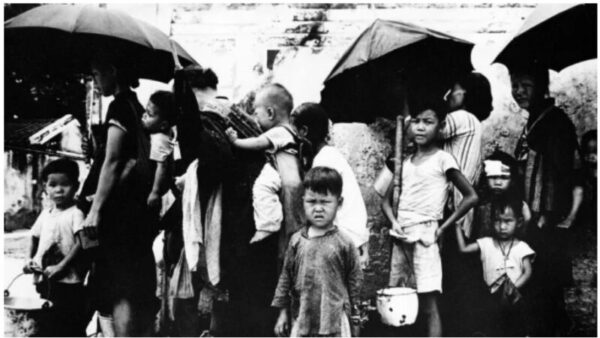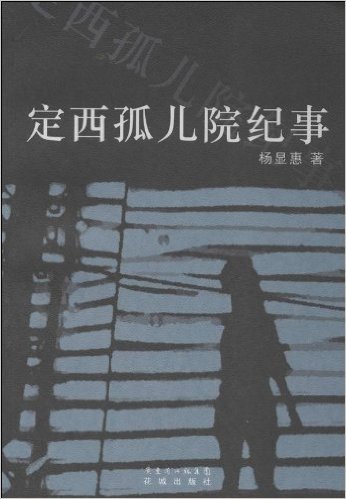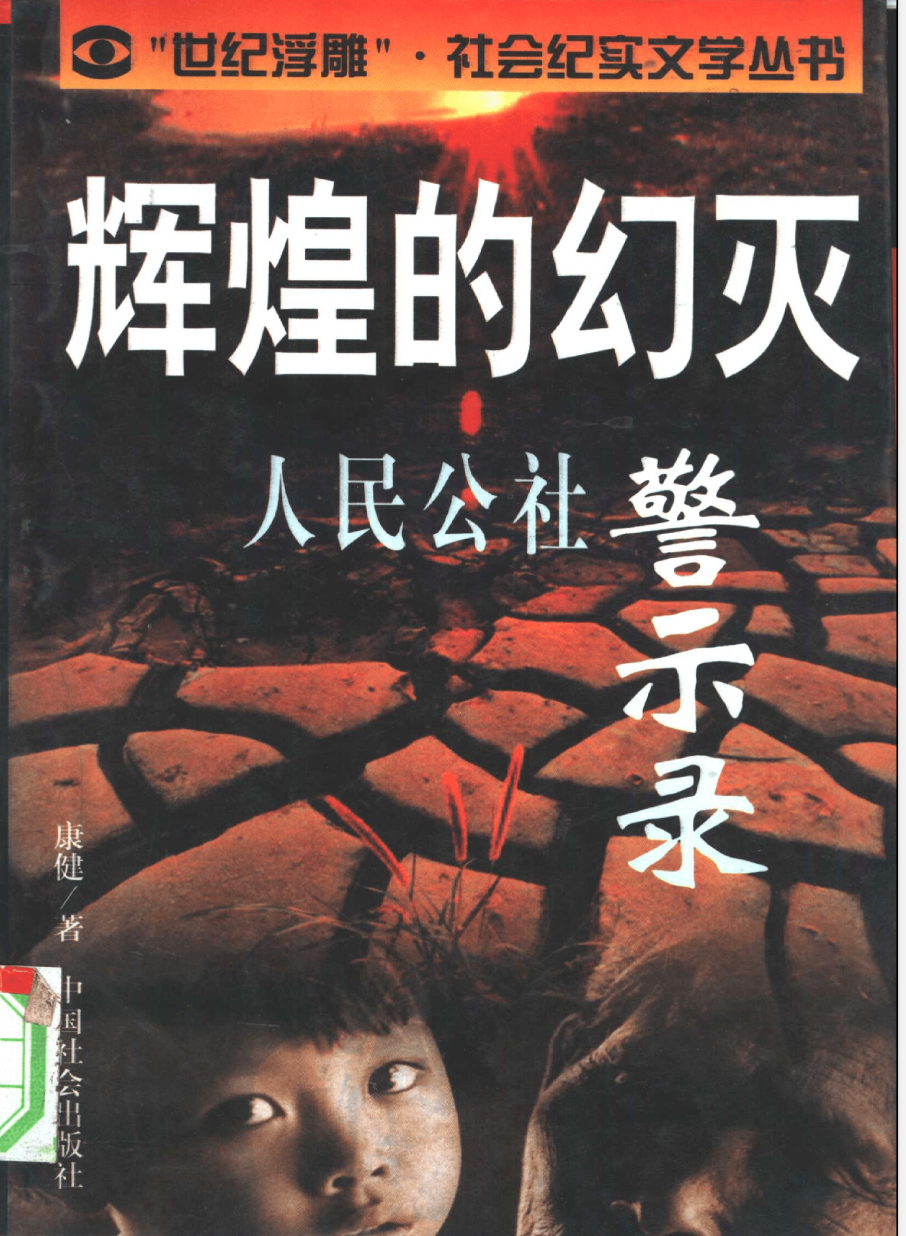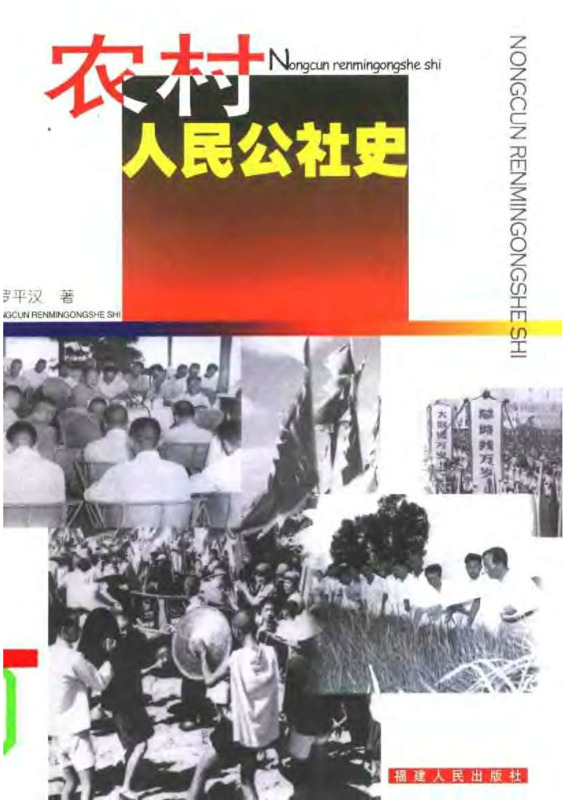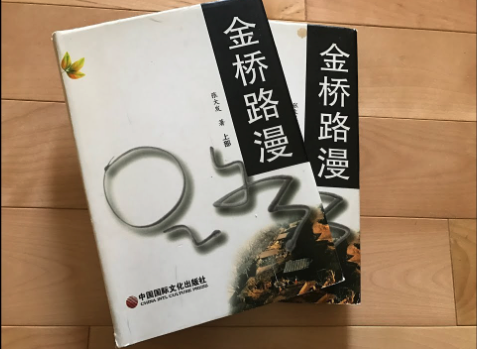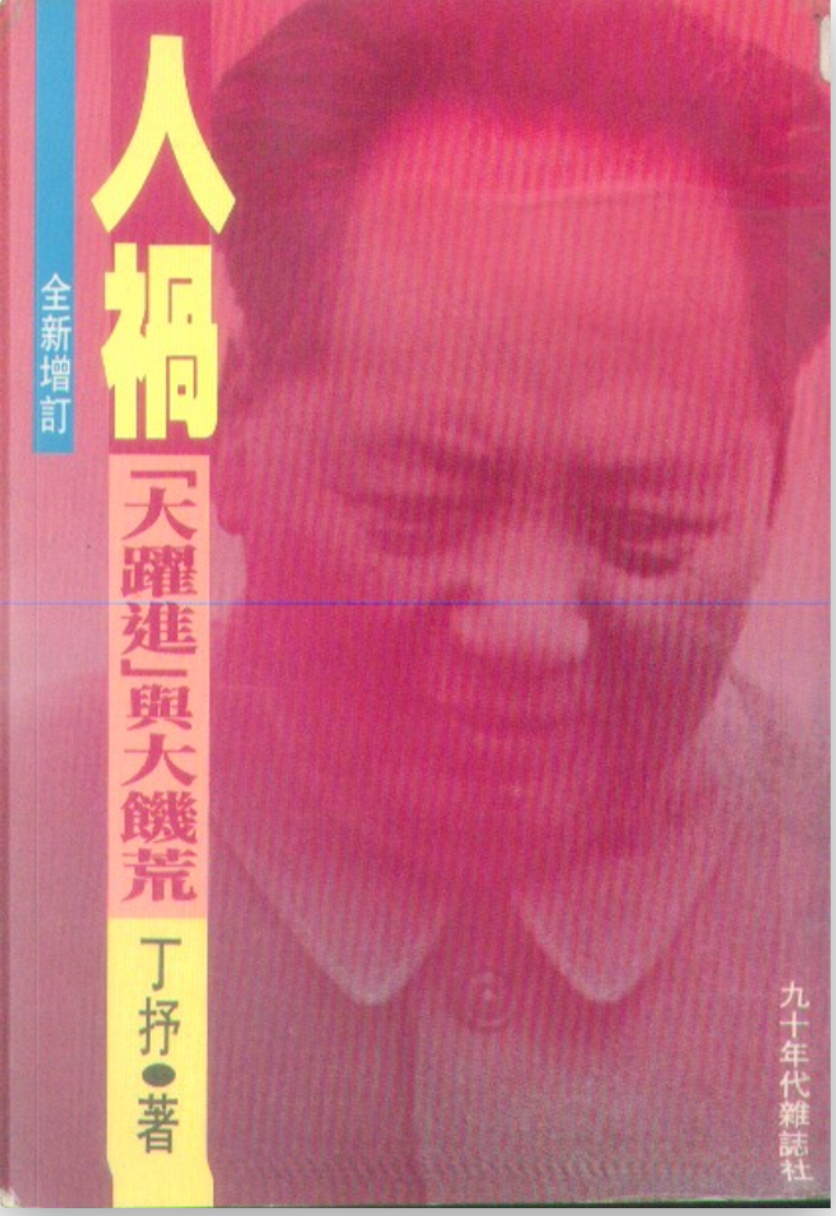Explore the collection
Showing 30 items in the collection
30 items
Book
At the Crossroads of History
This book is Gao Hua's next masterpiece after *How the Red Sun Rose*. It entails a selection of papers published by the author between 1988 and 2004, covering the fields of Republican history, Communist Party history, and contemporary Chinese history. It captures the historical interaction between the present and the past. Gao reflects deeply on the far-reaching Chinese Communist Revolution. With a rigorous and empirical research methodology, he sketches a complex and colorful picture of history, presenting the multiple facets of twentieth-century China's history.
Book
China's "Left Scourge"
The author of this book, Lu Jianhua (pen name Wen Lu), was a former member of the Chinese Academy of Social Sciences who published this book in 1993. He was sentenced to 20 years in prison in 2005 for "allegedly leaking state secrets" in connection with the "espionage case" involving journalist Cheng Xiang.
Book
Chronicle of Jiabiangou
Jiabiangou was a labor reform farm in Jiuquan County, Gansu Province, where "rightist" prisoners were held. October 1957, nearly 3,000 educated people were detained there. In October 1961, when the higher-ups corrected the "left-leaning" mistakes of the Gansu Provincial Party Committee and began repatriating the rightist prisoners, less than half had survived.
Writer Yang Xianhui spent five years interviewing more than a hundred people and brought to light the truth that had been sealed for more than forty years. Originally published by Tianjin Ancient Books Publishing House in 2002, this book also includes other short and medium-sized stories by Yang Xianhui.
Book
Chronicle of Rural Remediation of Communes in Difficult Times
Two years after the Great Famine of 1958, the government sent "rectification" work teams of about 10,000 people to many of the most severely affected provinces, such as Henan, Shandong, Anhui, Guizhou, Sichuan, Qinghai, and Xinjiang. The author of this book, Hui Wen, had just graduated from Renmin University of China and was assigned to work at the Institute of Modern History of the Chinese Academy of Sciences for half a year. In December 1960, he was sent to Jianyang, Sichuan to participate in the whole society. The book records what he saw during this period. heard.
Hui Wen came into contact with a large number of farmers and witnessed the situation of rural areas on the front line. Each article in the book records the date, place and passage of writing at that time, which adds to the history and authenticity of the book. After the Cultural Revolution ended in 1976, the author compiled these records into a volume. Through a case study of Jianyang, this book uses specific historical details to reflect the relationship between the Great Leap Forward policy and the Great Famine.
After the book was completed, due to China's strict publishing censorship system, the author did not submit it to a publishing organization and chose to circulate it among friends first. Later, he handed the manuscript to the website "China's Great Famine Archives," and this historical record was made public to the world.
Book
Chronicle of the Dingxi Orphanage
After the disaster in Dingxi Prefecture, which was the hardest-hit area of Gansu Province during the 1958-1960 famine, a children's welfare institution was urgently set up in Dingxi Prefecture to take in hundreds of orphans. During the same period, children's welfare centers or "kindergartens" were set up in all counties and towns in Dingxi Prefecture, as well as in the people's communes in the hardest-hit counties. These children's welfare centers, large and small, housed about 5,000 orphans. On the basis of faithful historical facts and statements by the parties concerned, this book brings tragic scenes of starvation and death before people's eyes using straightforward description, documentary language, and a down-to-earth tone of voice.
Book
Disillusionment of Splendor: A Cautionary Tale of a People's Commune
This book tells the story of China's first people's commune - the Chayashan People's Commune in the author's hometown. Chayashan is a township located in Suiping County, Xinyang City, southern Henan (now part of Zhumadian District). It is the location of the country's first people's commune established by Mao Zedong in 1958, and was also a model commune during the Great Leap Forward period. At the Lushan Conference in 1959, the commune was used in Mao Zedong's counterattack against Peng Dehuai, a general who opposed Mao's policies.
The author Kang Jian is a war veteran. More than thirty years after the Great Famine, Kang Jian visited the villages in Chayashan to conduct an oral history investigation. He used oral interviews to record the daily lives and experiences of farmers under collective economic practices. The author writes in the form of interviews, showing the history of Chayashan People's Commune in detail, and using specific cases to present the relationship between national political behavior and individual destiny.
Book
Experience: My 1957
Born in 1932, He Fengming and her husband Wang Jingchao were both labeled "rightists" during their work at the Gansu Daily Newspaper. In late April 1958, they were sent down to work at the Anxi Farm in Jiuquan. Her husband was sent to the famed Jibiangou Farm, where he died of starvation during the famine of 1960, but she survived. In order to refuse to forget, she spent ten years writing a 400,000-dollar self-narrative, *Experience - My 1957*. The book was published by Dunhuang Literary Publishing House in 2001.
Book
Gu Zhun Diary
This book contains the only three surviving diaries of Gu Zhun: one from October 1959 to January 1960 when he was exile to work in a labor camp in Shangcheng, Henan Province, one from October 1969 to September 1971 when he was sent to work in the May Seventh Cadre School in Xi County, Henan Province, and one from October 1972 to October 1974 when he returned to Beijing. The first two diaries, written during the Great Famine and the Cultural Revolution, record the tragedies Gu Zhun witnessed during the Great Famine as well as his own endurance of hunger, and how he underwent repeated punishment and ideological education as a Rightist. The third diary is a simple record of his life, but it shows that Gu Zhun spent the last two years of his life almost exclusively in reading, translating and writing. Since he personally experienced the Anti-Rightist Campaign, the Great Famine, and the Cultural Revolution, these three diaries are considered a valuable source of information about these historical events. In addition to Gu Zhun's diary, the book includes Gu Zhun's translation manuscript of a chapter on Christianity in English political scientist George Catlin’s book *A History of Political Philosophers* published in 1939. The book also includes his last letter to his sixth brother Chen Minzhi, several articles by other people commemorating Gu Zhun, and interviews with Gu Zhun's close friends. The book was published by the Economic Daily Press in 1997.
Book
History of the Chinese Thought Movement
This book is a masterpiece by Chinese scholar Li Honglin. The author was a representative of the ideological liberation movement during reform and opening up and was arrested after the Tiananmen Square incident in 1989. This book summarizes the various ideological purges launched by the CCP since its establishment in 1949.
Book
History of the Rural People's Commune
The author of this book, Luo Pinghan, is a native of Anhua County, Hunan Province. He graduated from the Party History Department of Renmin University of China and served as director and professor of the Party History Teaching and Research Department of the Party School of the Central Committee of the Communist Party of China. This book was published by Fujian People's Publishing House in 2003.
The book is divided into nine chapters, narrating the history of the people's communes from the perspective of an orthodox view of historical development. The time nodes selected by the author include the rise, tide, adjustment, repetition, retreat, and disintegration of the Great Leap Forward. With Mao Zedong's affirmation, the system of people's communes was rapidly promoted across the country in 1958. At that time, the people's commune was both a production organization and a grassroots political power. Its rise and fanatical development are closely related to the subsequent Great Famine.
As a scholar within the system, the author’s view of history also belongs to the orthodox ideology. Although this book is narrated from the official ideology of the CCP, it uses rich and detailed historical materials to comprehensively and systematically introduce the history of the People's Communes, giving it a reference value for a comprehensive understanding of this movement.
Book
In Search of Cannibal Witnesses
This book is part of author Eva's "Famine Trilogy." Because her mother was a survivor of the famine in Gansu, Eva has obsessively pursued and recorded that tragic history. She visited a dozen counties in Gansu and Shaanxi four times and interviewed two hundred and fifty people. The list of starving victims recorded in the book is about eight hundred and thirty, while as many as one hundred and twenty-one incidents of cannibalism and cannibalistic phenomena were recorded.
Book
In Search of Famine Survivors
This is the first book in author Eva's "Famine Trilogy," in which she traveled to Qin'an County, Tongwei County, and Tianshui District in Gansu Province as well as to Yaozhou and Tuxian County in Shaanxi Province in 2011. She interviewed more than two hundred survivors of the Great Famine, with the oldest person being ninety-five years old and the youngest being fifty-eight years old. This book allows these lowest class, mostly uneducated peasants to speak and provide their own witness, leaving behind their voices and oral history. Based on interviews with more than fifty interviewees, the book contains the names of more than five hundred victims and forty-nine incidents of cannibalism.
Book
In Search of My Homeland
“In Search of My Homeland” is a collection of essays in three volumes written by Gao Ertai during his exile abroad. In this book, Gao looks back on his life. From his hometown of Gaochun, a small town in Jiangsu Province, to Suzhou, then to Lanzhou, Jiuquan, Dunhuang, Beijing, Chengdu, and the United States, Gao has undergone tremendous suffering, lost his home and family, and finally had to go into exile in a foreign country. Even though the work is widely regarded as having great literary merit, Gao uses real names and places, which makes the work a valuable historical document, especially for describing the Great Famine, and the brutal suppression of intellectual life during the Cultural Revolution at the Dunhuang research academy, which is one of China's most prestigious cultural institutions.
In an [interview](https://web.archive.org/web/20240130211408/https://www.aisixiang.com/data/80804.html), Gao explained why he wrote the book: "Searching for my homeland is nothing but searching for meaning.... Life is short and small, and its meaning can only be rooted in the external world and in the long history. My sense of drift and meaninglessness, that is, a feeling that the world has no order, history has no logic, and the individual has no home, seems to be a kind of destiny. My writing is nothing but a resistance to this destiny."
In 2004, a censored version of the first two volumes of this book was published by Huacheng Publishing House in Guangzhou; in 2011, an updated version was published by Beijing October Arts and Literature Publishing House, but still censored. The version uploaded to our archive is the traditional Chinese version of the complete three volumes published by Taiwan INK Publishing House in 2009.
Book
In Search of the Fleeing Women and Children
This book is part of writer Eva's "Famine Trilogy." It is also the only oral history monograph on women and children who fled the famine in Gansu and Shaanxi from 1958 to 1963 as of now. More than 1.3 million people starved to death in Gansu Province, the hardest-hit area of the Great Famine, and more than 100,000 women between the ages of 16 - 15 years old fled the famine and left Gansu. What happened to them and their children is one of the most tragic memories of the Great Famine.
Book
Jin Qiao Lu Man
During the three years of famine from 1959 to 1961, Tongwei's unnatural deaths due to starvation and its related factors amounted to one-third of the county's population. Mr. Zhang Dafa, who worked in Tongwei for many years and later took part in the preparation of the new Tongwei County Record. Published in 2005 through the Dingxi Writers' Association, this is a collection of his many social research reports on the Tongwei issue, "Jinqiao Luwan," which profoundly reveals the tragedy and gravity of the Great Famine, a man-made disaster, within the boundaries of a single county.
Book
Lin Zhao: No Longer Forgotten
This book contains a number of articles in memory of Lin Zhao. It concerns the death of Lin Zhao as well as Lin Zhao's love, pursuits, and disillusionment. This book was published by Changjiang Literature and Art Publishing House in 2000.
Book
Lushan meeting factual record
This book is a historical record of the 1959 Lushan Conference written by Li Rui. Based on the author's personal experience and the literature of the relevant departments of the Communist Party of China, the author has recorded the important points and events before and after the meeting. The first edition of this book was published in April 1989 by the Spring and Autumn Publishing House and Hunan Education Publishing House in mainland China; the updated edition was published in June 1994 by Henan People's Publishing House.
Book
Man-Made Disasters: The Great Leap Forward and the Great Famine.
The author of this book, Ding Shu, is a Chinese scholar living in the United States. Published in 1991 by the Hong Kong-based "Nineties Magazine", this book is the first monograph on the Great Famine in China. It has been described by some scholars as the cornerstone of the study of the Great Famine in China. The book was later updated and reprinted. The book starts from the cooperative movement and moves on to the Great Leap Forward, the Great Iron and Steel Refining, the People's Commune, the Satellite Release and the Great Communist Wind; then, it turns to the Lushan Conference against right-leaning as well as the 7,000 People's Congress in 1962. The author collected almost all the information that could be collected at that time and summarized it to describe the situation of this great famine and its causes and consequences. The content of this book is from the website of the Chinese blog "Bianchengsuixiang" (编程随想).
Book
Mao in Power (1949-1976)
The author of this book, Shan Shaojie, is a scholar from mainland China. For several years, he wrote this book from an independent position. Former political secretary of Mao Zedong, Li Rui, and Princeton University professor, Yu Yingshi, wrote the foreword for this book. In addition to a systematic account of the Maoist era, Shan Shaojie's book "Mao in Power" emphasizes that almost all members of the Communist Party's highest decision-making echelons, with the exception of Mao Zedong, made efforts, in varying degrees and successively, to stop Mao's insanity. Moreover, they took turns to resist and ultimately to leave Mao alone, but did not really stop Mao's madness. This book was published by Linking Publishing in 2001 and has been reprinted several times.
Book
Mao: The Unknown Story
This book presents the dramatic life of Mao Zedong, revealing a wealth of unheard-of facts: why Mao joined the Communist Party, how he came to sit at the top of the Chinese Communist Party, and how he seized China step by step. Writers Jung Chang and her husband Jon Halliday took ten years to complete this book, interviewing hundreds of Mao's relatives and friends, Chinese and foreign informants and witnesses who worked and interacted with Mao as well as dignitaries from various countries.
Purchase link:https://www.amazon.com/Mao-Story-Jung-Chang/dp/0679746323.



